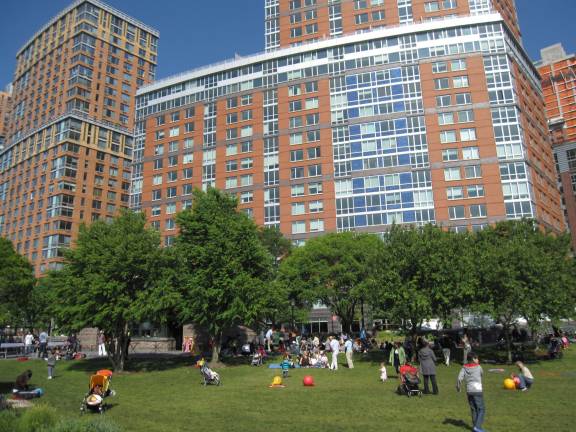Bill would reform BPCA board

After Martha Gallo resigned from the Battery Park City Authority (BPCA) last month, there were no longer any residents of Battery Park City or the neighboring area represented. Even before Gallo’s tenure, the board never had more than one local member. The rest of the seven-member authority board has two vacant seats, and four of its members’ terms have expired. A bill that is making its way through the Legislature aims to change that.
State Senator Daniel Squadron, Assembly Member Deborah Glick and Assembly Member Yuh-Line Niou have teamed up to pass new legislation that would require a majority of the BPCA’s members to be residents of Community District 1, which includes much of Lower Manhattan below Canal Street. The bill passed the Assembly May 2, but it still has hurdles to jump before becoming law.
Glick said many of her colleagues, though they represent all areas of the state, were respectful of the Lower Manhattan community’s need for more say on the BPCA. She and Squadron emphasized the need for residents who support the bill to write to Senator Michael Ranzenhofer, the chair of the Corporations, Authorities and Commissions Committee, who will decide whether to bring the bill to a vote. “Unfortunately, in the stunted legislative process of the Senate, things don’t happen until they do,” Squadron said. “But the more public pressure there is, the more likely we can get that vote. I’m confident that if we do it will pass.”
In response to an interview request, the BPCA issued a statement saying calling its members “devoted and well-accomplished individuals with diverse professional backgrounds.” “The choice of candidates for the Board is entirely within the purview of the governor with a confirmation process in the Senate,” the statement read. “We have complete confidence that Governor [Andrew] Cuomo will continue to select members of the highest caliber.” The authority is overseen directly by the governor, who so far has not been responsive to the call for more local representation.
Tensions between the community and the authority have been evident since well before the Assembly’s vote. In early 2016, the BPCA decided to replace the Parks Enforcement Patrol that had long handled security in Battery Park City with a private security firm, frustrating residents who were not consulted or informed of the decision. Community members also say that the BPCA’s purpose has changed since it was created in 1968 for the purpose of “developing and maintaining” the area. It is now mostly a landlord for Battery Park and a manager of the neighborhood’s 13,000 residents. Given its current role, Anthony Notaro, chair of Community Board 1, said the influence of community voices “needs to be even stronger.”
In a resolution passed on March 28, Community Board 1 expressed support for the concept of more representation, but asked for a change from its elected officials. “[Community Board 1] asks that language showing a preference for the appointment of [Battery Park City] residents, as opposed to the larger group of Manhattan Community District 1 residents, be added to the bill or entered into the official legislative record,” the resolution states. Notaro stressed that Battery Park City residents are most affected by the authority’s decisions, and should therefore have the most say in them.
Glick was aware of this request, but said she worried that a bill requiring a majority of the BPCA to be comprised of Battery Park City residents would be too narrow to succeed. Whether including all residents of Community District 1 will be enough to get the bill passed remains to be signed. Even if it does get through the Senate, it will still face the governor’s judgment.
Madeleine Thompson can be reached at newsreporter@strausnews.com